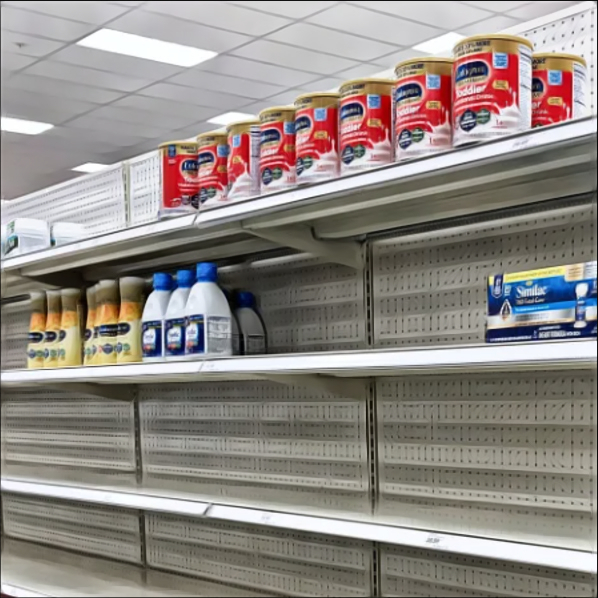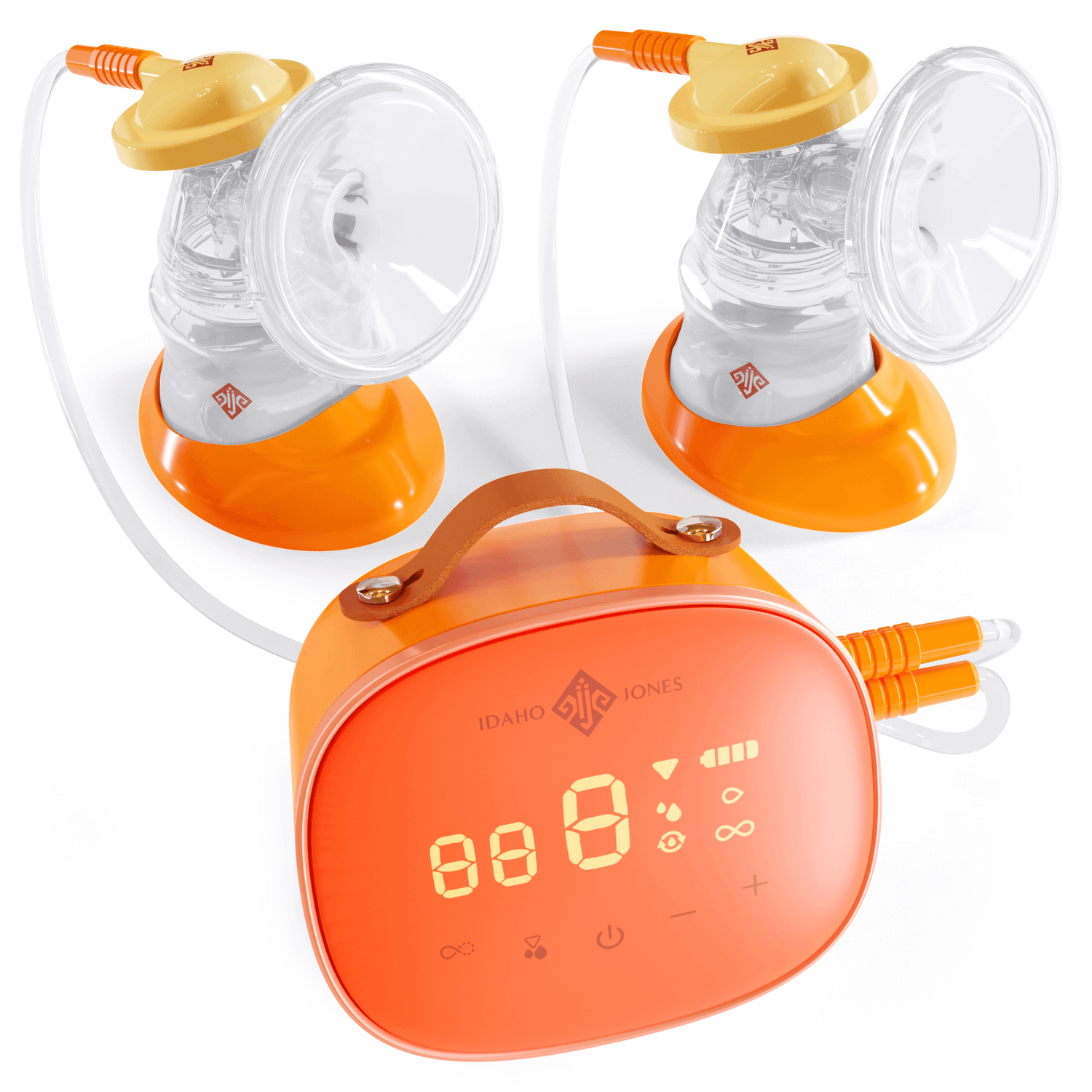
Formula Shortage 2022 and Breastmilk Sharing
Share
The United States is in the midst of a formula shortage crisis. This is a calamity of devastating proportions that concerns all of us. How did we get here? How will we get out of this mess? What does it mean for families and babies right now? And how can the community help?
As a mother and an American the formula shortage crisis takes my breath away. This is an injustice to our nation’s children along the lines of the greed and corruption-fueled lead poisoning fiasco that devastated the children of Flint, Michigan only recently. How can this be happening here, I find myself asking? How can “the greatest nation on earth” abandon its most precious and most vulnerable?
When this is past there will, no doubt, be a congressional investigation and a day of reckoning. For now, there are only the tears of desperation and rage of those parents who don’t know where their baby’s next bottle is coming from.
They literally do not know where their baby’s next bottle is coming from. Because the shelves are bare.
The facts: The US infant formula industry is a highly-regulated multi-billion dollar industry controlled by four major players, with operations highly concentrated within a handful of production centers for cost efficiency. When a concern arose several months ago about possible contamination stemming from Abbott Nutrition’s Michigan plant, an FDA investigation resulted in a massive recall of existing product and the forced closure of the plant.
At the time of the recall and the shut down, Abbott Nutrition controlled nearly 50% of the formula market, with the lion’s share produced at the Michigan plant.
It’s hard to overstate the short-sightedness of this action and the callous disregard for the consequences—the frightening, horrific impact it would have on families and babies. And of course, like with every other social ill—it’s the poorest among us who will suffer the most.
That’s because the largest purchaser of infant formula is the federal government, who doles it out to mothers and their babies through the WIC program. The states enter into exclusive contract with formula manufacturers, resulting in a price break for the government and a captive, loyal market for the formula manufacturer.
Abbott Nutrition has the exclusive formula contract with most of the states. That means the families who must rely on vouchers to purchase formula can only use their vouchers to purchase Abbott products.
In response to the crisis, states have scrambled to relax their rules.
But how is it possible that no one in a position to do something about it saw this coming?
How is it possible that we don’t have a national stockpile of infant formula that could be released in just such an emergency?
How is it possible that the formula companies are awarded massive, billion-dollar contracts with the US government that don’t require any contingency plan in case of an emergency?
It boggles the mind.
While President Biden has invoked the Defense Production Act and authorized military flights to procure formula overseas and bring it home, we are admittedly months away from a resolution to the crisis.
The Department of Health and Human Services has posted a tip sheet for how to get through this.
As a former IBCLC I can’t help but wonder if breastfeeding could help mitigate this disaster.
Now, hold it right there!
I do not for one minute mean to imply that the answer for any family who can’t find formula for their baby is to just breastfeed. That’s not a thing. No one can “just breastfeed.” It simply doesn’t work that way, and to tell a mother who is suffering because she doesn’t know where her baby’s next bottle is coming from, that she should just breastfeed is cruel, offensive, and ignorant.
That’s not what I mean at all.
What I mean is milk sharing.
We are in a formula shortage crisis, not a breastmilk shortage crisis. Some mothers make more than enough milk for their own baby. They make a surplus. This surplus can be collected, donated, and shared.
Milk sharing in its different guises—think yesterday’s wet-nurses, and the human milk banking industry of today that provides milk for the most fragile of premies—has existed as long as breastfeeding has existed. Human milk is a precious resource right here in front of us that mothers control.
Until there is formula back on the shelves, available and affordable for desperate families, milk sharing can be a suitable alternative for some families.
In an ideal world, human milk would be available for any baby in need through an accredited human milk bank. Unfortunately, human milk banks simply don’t have the resources and must prioritize the neediest infants.
But informal milk sharing arrangements outside of human milk banking are possible. In this time of crisis we should decry the social stigma of informal milk sharing arrangements for healthy, term infants. It’s time to stop making it weird and time to inform mothers how to participate safely in informal milk sharing arrangements.
In their 2017 position statement on informal milk sharing, The Academy of Breastfeeding Medicine offers three main guidelines:
- Mother-to-mother screening process through face-to-face and/or telephone interview/conversation. Donor mothers should be in good health and medication use should be none at all, or only those medications that are compatible with breastfeeding.
- Internet-based breast milk sharing, and especially the purchase of milk over the internet, is strongly discouraged since (1) the donors are unknown to the recipient and/or cannot be medically screened and (2) the milk is often not suitable for consumption upon arrival.
- Human milk can be pasteurized at home using either the Holder or flash method.
Surely, sharing milk is less dangerous than an infant going hungry.
For more on what to do if you are affected by this shortage:
https://www.bfmed.org/statement-on-shortage-of-breastmilk-substitutes
For more information on informal milk sharing networks in your area:
https://www.facebook.com/hm4hb/


